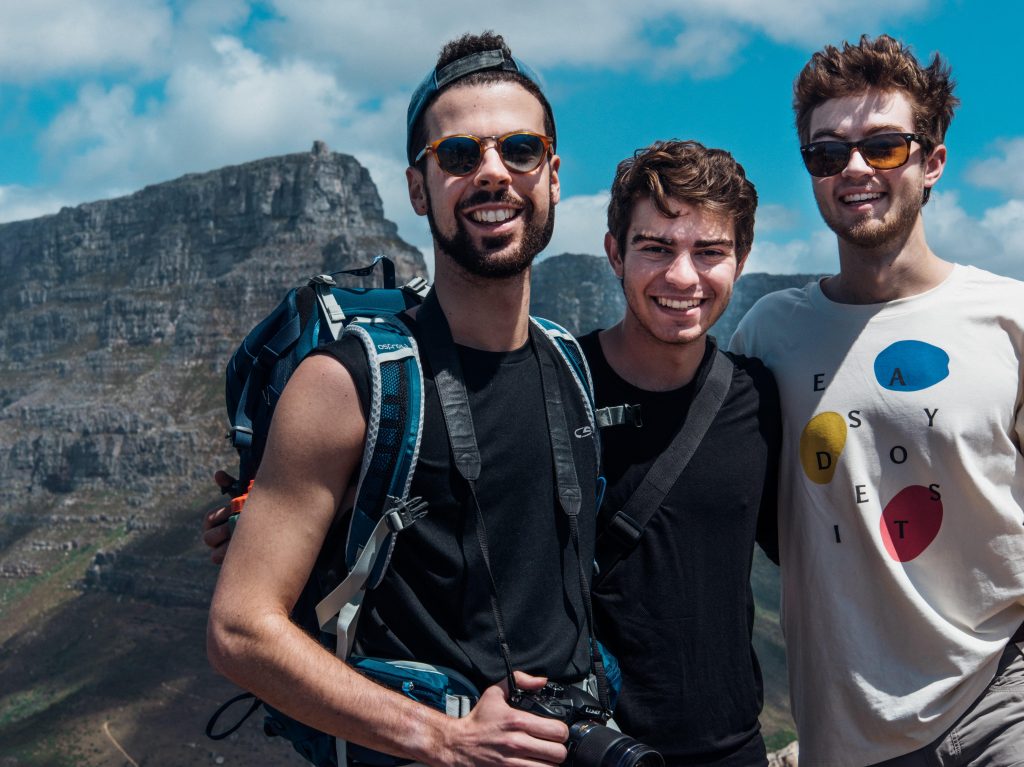Cape Town’s Post-Apartheid Legacy: Stories by Three Tar Heels
March 28, 2018
UNC Global Affairs
 Sami Lachgar '18 (center)
Sami Lachgar '18 (center)
Sami Lachgar ’18, a Morehead-Cain Scholar and business major with a concentration in international business and entrepreneurship, will graduate from Carolina in May and is preparing to work in product marketing at Google in September. But before embarking on his career path, Lachgar and his recent Cape Town, South Africa travel partners—David Doochin ’18 and Nicholas Byrne ’19—are leaving behind a legacy of their journey together, a trip told in six vibrant multimedia stories on their new website, Edges Cape Town.
Lachgar’s multicultural upbringing inspired the project. His mother, a nurse, and his father, a chemistry professor at Wake Forest University, are French and Moroccan, respectively. Raised in Winston-Salem, North Carolina, Lachgar and his brother Nabil, also a Carolina graduate, regularly visited their extended families overseas.
“I was fortunate to have the opportunity to travel to other countries and learn about other people and cultures,” Lachgar said. “This exposure shaped who I am.”
During his Carolina career, Lachgar’s hunger for travel has taken him to Cape Town, South Africa; Copenhagen, Denmark, and Hong Kong, China, for semesters abroad; and Nairobi, Kenya, for a summer working at an agrotechnology accelerator.
The idea for Edges Cape Town emerged over winter break, when the trio traveled to South Africa’s second-largest city, with support through Morehead-Cain. During the trip, the team explored how Cape Town’s apartheid legacy affects arts, entrepreneurship and urban spaces across the city.
Byrne is a UNC School of Media and Journalism student, and his skills in videography and photography were put to good use when the students interviewed musicians, artists, activists and others, examining spaces District 6, Kirstenbosch National Botanical Garden and Bay Harbour Market.
As part of the project, they met with Denis Goldberg, a social campaigner and a leader of the anti-apartheid movement. Goldberg received multiple life sentences during the Rivonia Trial, which led to the imprisonment of Nelson Mandela, among others. Goldberg served 22 years before being released.
“He’s an incredibly wise man,” Lachgar said. “We feel so fortunate to have interviewed him and learned about the anti-apartheid legacy firsthand from someone so entrenched in the movement.”
To date, the team has posted three stories, which include interviews, text, video and photography, as well as a one-minute teaser video to build interest among visitors to the site. The team hopes to screen mini-documentaries from their trip and show a 360-degree video produced with virtual reality goggles borrowed through the School of Media and Journalism.
